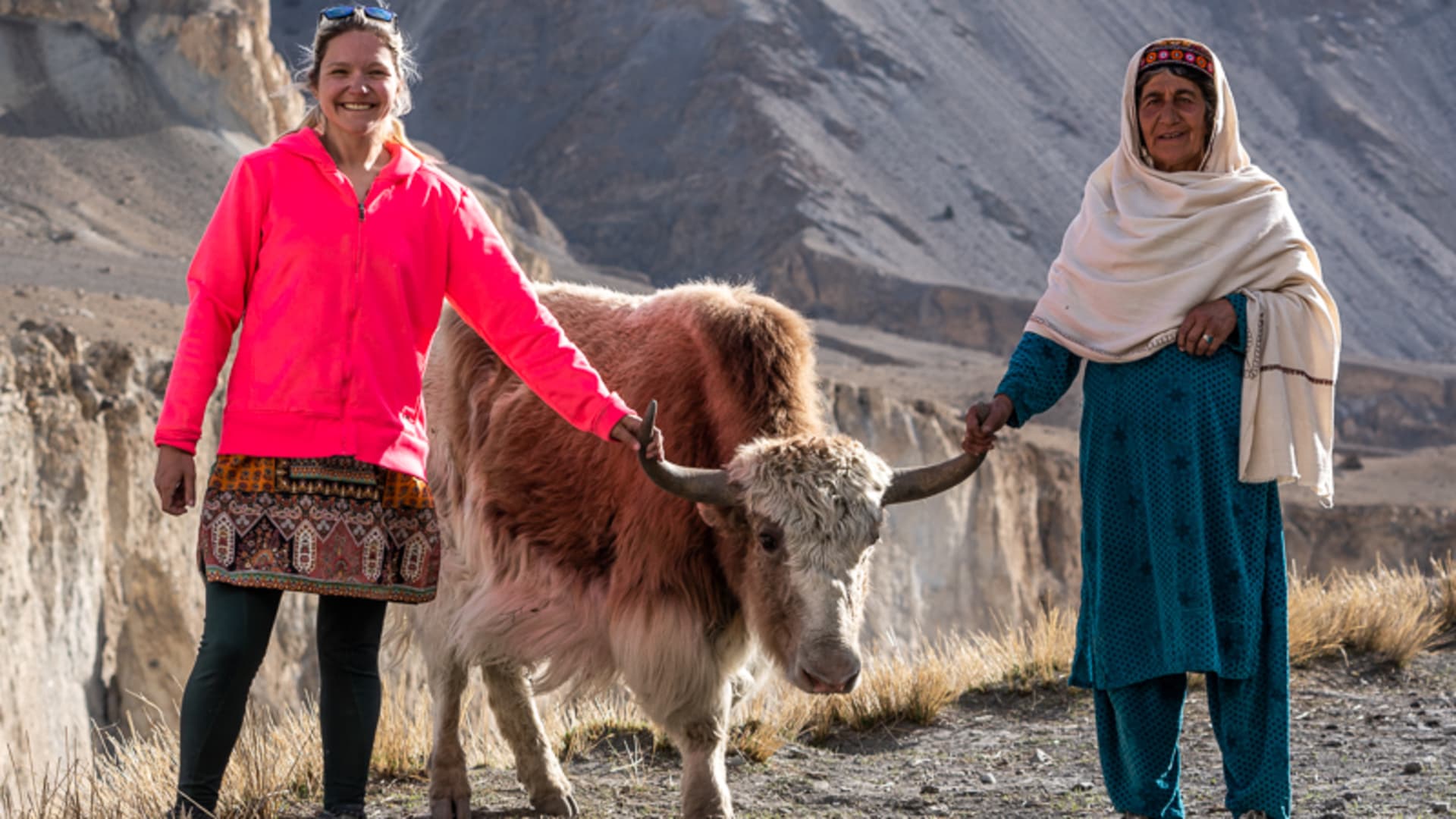In a little-known mountainous area called Hunza Valley, located far north of Pakistan, people seem to defy all medical odds.
It is primarily home to the Burusho and Wakhi people, who for centuries have survived and thrived in remote villages — with minimal amenities and rudimentary health facilities. Studies have found that the average life expectancy here is around 100 years.
My husband was born and raised here, and is from the Burusho indigenous community. After we got married, I left the U.S. and we settled down in the Central part of the valley.
Here are some intriguing habits that help the people of Hunza live longer:
1. They consume apricot seeds and oil
Apricot trees are one of the most important local crops in the valley. Studies have shown that apricot seeds can help fight cancer and other sources of inflammation in the body, in part due to a compound called amygdalin.
Nearly every traditional Hunzai dish includes apricot oil. Back in the day, it was made by hand, but now locals use machines to extract it from their harvested kernels.
My mother-in-law told me that 50 years ago, it was all anyone used to cook food with, even meat. Dried versions of the fruit also help with altitude sickness, and are boiled into a soup come winter.
2. They never stop moving
People here are healthy and active throughout their lives, well into old age. It’s very common to see folks in their 80s outside, even in the winter. Elderly family members still graze their cows and sheep, collect wood, and do other household tasks.
They also participate in community activities like “rajaki,” which involves cleaning out the elevated water canals when spring arrives.
Locals of all ages cycle, skate, and play sports like soccer and cricket every day.
3. They drink glacier water
Hunza is filled with dozens of glaciers, all of which melt throughout the summer.
A shiny, dark-grey liquid, “Hunza water” has long held the interest of scientists. Unlike other water sources, this glacial water is…
Read the full article here

Leave a Reply